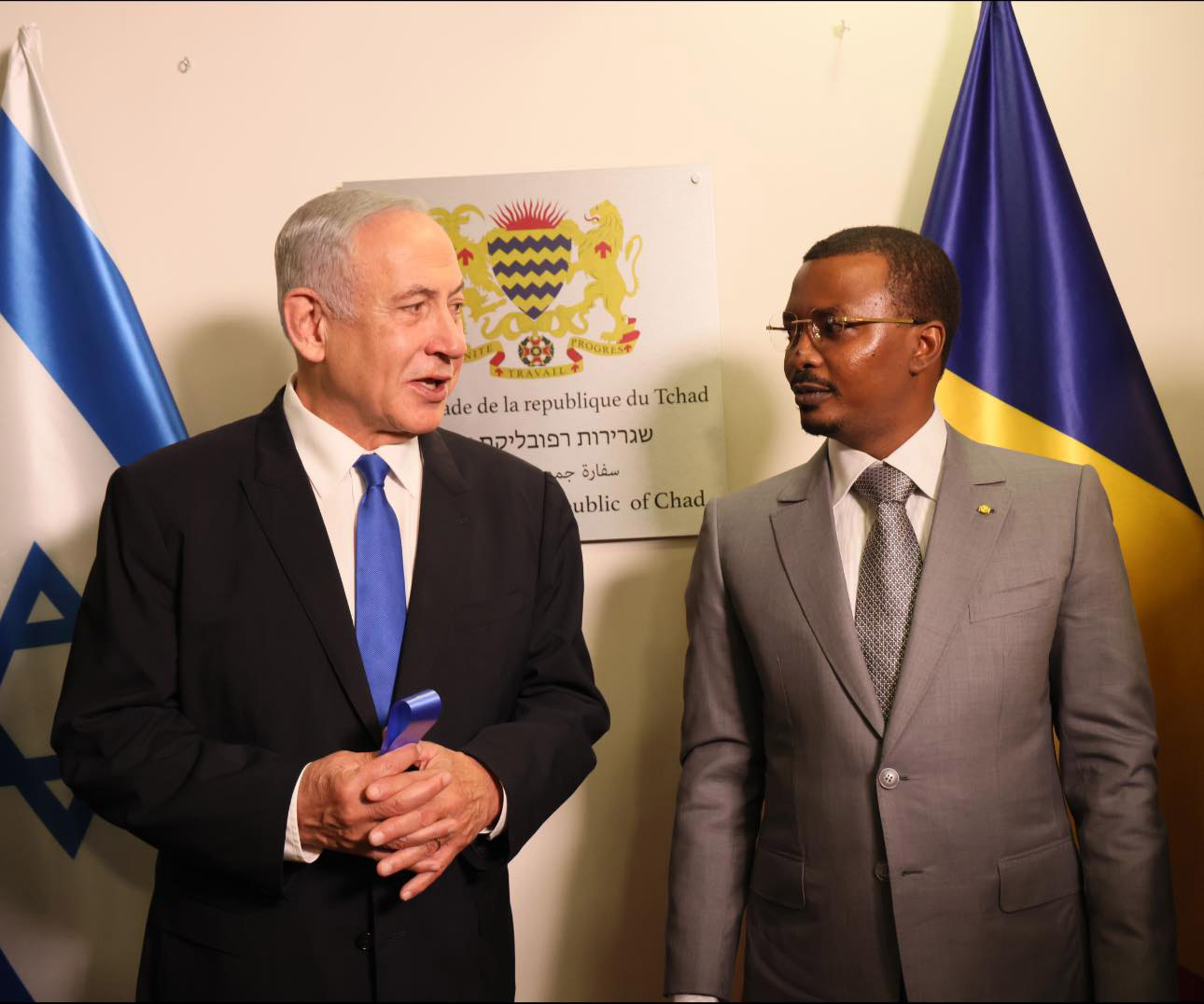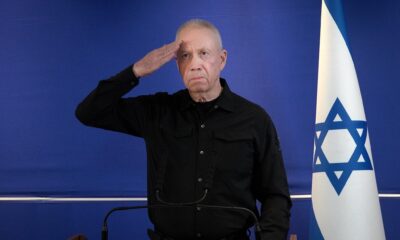
Israel

SA out in the cold after ‘day of peace’ between Israel and Africa
In the space of less than 24 hours on 2 February, there was a sea change in relations between Israel and two predominantly Muslim African states after Chad opened an embassy in Ramat Gan and Sudan confirmed that it would sign a peace agreement with Israel.
“Sudan previously fought alongside Arab countries in the 1948 War of Independence and in the Six-Day War in 1967, when it also hosted the Khartoum Conference of the Arab League which established the ‘three nos’ – no recognition of Israel, no negotiations with Israel, and no peace with Israel. This treaty will be an official peace treaty, recognised on par with the treaties with Egypt and Jordan,” said Professor Glen Segell.
Segell is visiting professor and research fellow at the University of the Free State, research fellow at Haifa University, and an associate of the Think Tank for the Research of Islam and Muslims in Africa.
But South Africa continues to swim against this tide, and experts say the country will ultimately be left “at sea” while other African countries benefit from closer relations with the Jewish state.
Chad’s president, Mahamat Idriss Déby, opened his country’s embassy in Israel four years after the countries renewed ties. Prime Minister Benjamin Netanyahu called the embassy’s inauguration “an historic moment”. Meanwhile, Israel has said the peace agreement with Sudan will be signed in Washington, D.C. in a few months’ time.
“We’re strengthening our friendship and our common interests in pursuing peace, security, and prosperity,” Netanyahu said at the opening of the Chadian embassy. Israel recognised Chad when it declared independence from France in 1960. But relations broke in 1972 amid pressure from Muslim African nations. In a 2019 visit to Chad, Netanyahu and Déby announced a resumption of diplomatic relations.
Israel’s foreign minister, Eli Cohen, said the text of the agreement with Sudan was finalised during his one-day visit to see Sudanese leader Abdel Fattah al-Burhan. “Khartoum, the capital of Sudan, is remembered as the city where the Arab countries decided on the historic ‘three nos’. We’re building a new reality with the Sudanese in which the ‘three nos’ will become ‘yes’ to negotiations between Israel and Sudan, ‘yes’ to recognition of Israel, and ‘yes’ to peace between the states and between the peoples,” said Cohen.
Sudan agreed two years ago to normalise relations with Israel, the latest Arab League country to establish ties. The United Arab Emirates, Bahrain, and Morocco have officially normalised relations with Israel as part of the Abraham Accords.
“Israel saw the restoration of relations with Chad in 2019 as an important stepping stone that paved the way to convincing neighbouring Sudan and Morocco to join the Abraham Accords,” said Segell. “It’s hoped that such progress will unlock relations with other Muslim African states, especially Chad’s neighbour, Niger. This will generate a geo-strategic corridor of friendly states from the Indian to Atlantic oceans, including Sudan, Chad, Central African Republic, Cameroon, Niger, and Nigeria.
“The odd one out for Israel’s efforts is South Africa, which is stuck in a time warp, and that prevents the sort of fruitful co-operation seen in Israel’s relations elsewhere across Africa,” said Segell.
He pointed out that many of these states also have French ties. “Niger is the source of French uranium, and Chad is a Francophone state. Bibi [Netanyahu] also headed to Paris for an official visit.” He also noted that “two days ago [before 2 February] Sudan leaders were in Chad, just before Chad leaders came to Israel”.
Hussein Solomon, senior professor in the department of political science at the University of the Free State, agrees that “Chad and Francophone Africa are more receptive to Israel than, say, Algeria and South Africa. So I expect more Francophone countries to follow the Chadian example. South Africa has made it clear that it’s opposed to these developments. It’s on the wrong side of history.
“Israel has observer status at the African Union,” Solomon said, although this continues to be challenged by some African countries, including South Africa. “When he was previously prime minister, Netanyahu did much to advance bilateral ties with African states, visiting several of them.”
Local political analyst Steven Gruzd said, “I give credit to Netanyahu for re-energising African relations. They went into a lull with the previous government. This forms part of his strategy to break up automatic bloc votes from African states against Israel in the United Nations and other multilateral forums.”
He thinks these events are “an important achievement. It’s significant to open an embassy – it shows commitment, and paves the way for better relations and for Israel to help a poor country like Chad. At the moment, Israel has relations with more than 40 countries in Africa. Chad is a Muslim majority country and that’s significant.
“It shows that South Africa is out of step in its Middle East policy,” said Gruzd. “South Africa seeks to isolate Israel, but it’s a fruitless endeavour because in the end it’s going to be South Africa which suffers from not having access to Israel’s technology, knowhow, and experience.”
“The Chadian embassy and Sudanese agreement indicate that there’s definite momentum amongst many African states to restore, revitalise, and even start afresh with diplomatic relations with Israel,” said local political analyst Daniel Silke.
This is particularly significant, Silke said, “given the drift to the right within Israeli politics, the predominance of religious nationalism in Israel, and heightened tensions with the Palestinians. Israel’s diplomatic service has been able to pull off quite a substantial coup in terms of its relations with Chad and Sudan. This shows a deepening understanding and commitment from many African countries that there are a number of sides to the Middle East story, and the approach to Israel is much more mature than our one-sided approach here in South Africa.”
These events will “further drive a gulf within African nations, and could also lead to diplomatic tension between South Africa and other African countries”, Silke said.
South African Zionist Federation (SAZF) Chairperson Rowan Polovin said, “The SAZF celebrates Israel’s growing ties in Africa. During a meeting with Prime Minister Netanyahu in Jerusalem last week, Chadian President Déby said that Chad and Israel were at a decisive turning point in their relationship. In addition, the peace agreement with Sudan indicates an irrefutable move to promote peace, dialogue, and increase economic co-operation between Africa and Israel in 2023.
“The SAZF is moved by this encouraging political development, and calls on the African National Congress government to follow suit and reinstate South Africa’s ambassador to Tel Aviv without delay, or risk being left behind by the latest diplomatic developments between Israel and the rest of the continent,” said Polovin. “The consistent increase in co-operative engagements between Israel and Africa indicates that the stance of the African National Congress government to oppose Israel’s participation at the African Union remains misguided and should be abandoned with immediate effect.”
Photo Credit: Mahamat Idriss Deby Itno Facebook page










